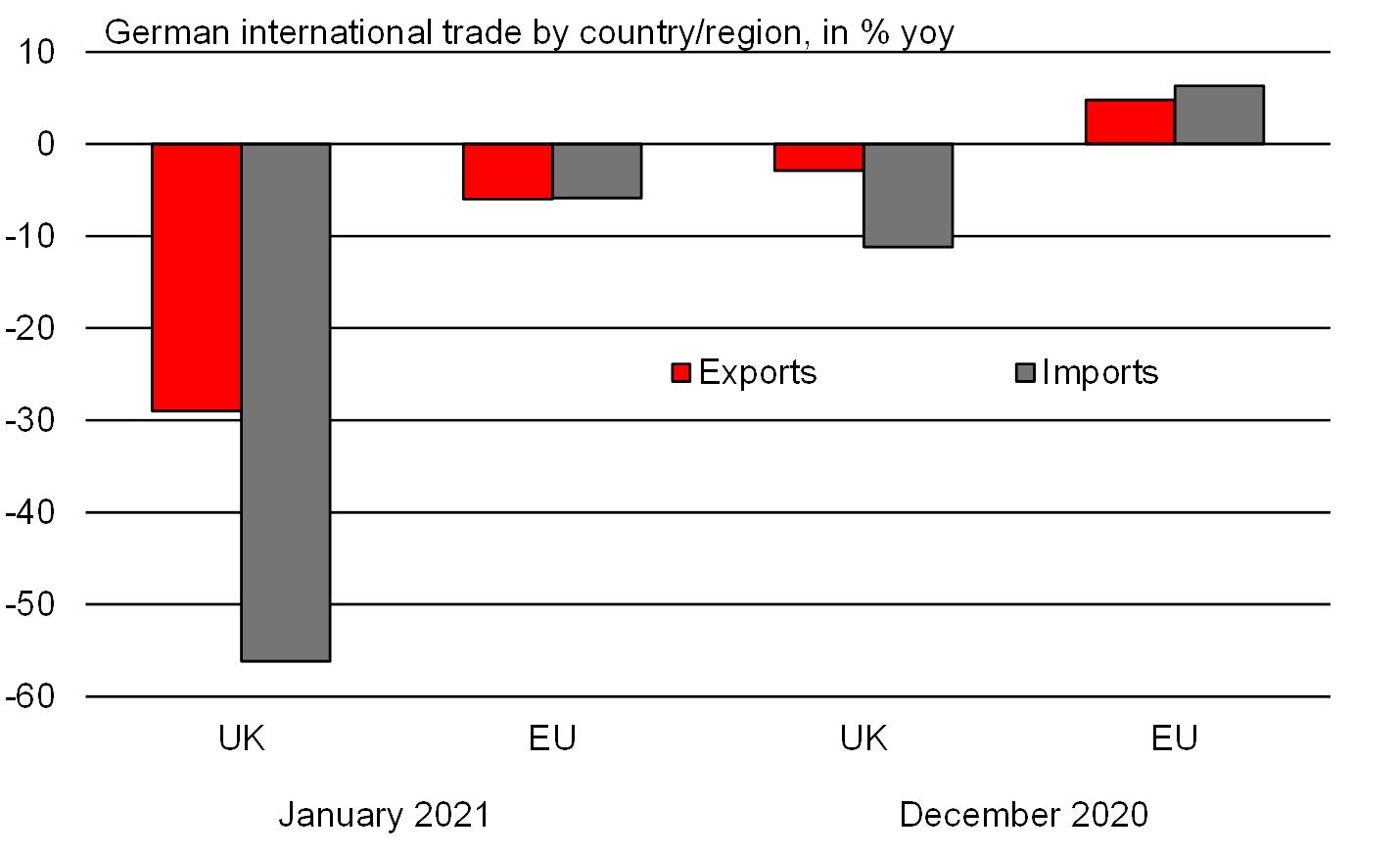‘Brexit’ and COVID-19 triggering collapse in German-British trade
Source: destatis, UniCredit Research
■ This morning, the German exports and imports data for January 2021 were released. It was the first official reality check after the UK leaving the EU at the beginning of 2021. The data painted a grim picture for bilateral trade, especially for British exporters. German imports from the UK (or UK exports to Germany) nosedived 56% yoy. German exports to the UK declined by nearly 30% yoy. This compares to German imports/exports from/to the EU shrinking a more moderate 6% yoy. In December 2020, bilateral trade between Germany and the UK still declined rather moderately. ■ We think that three major factors triggered the recent collapse in German-British trade. The first one is Brexit and, in particular, the expiry of the standstill transition period at the end of last year and the new rules for trading goods and services with the EU that came into effect on 1 January. Especially some SMEs might have deemed the cost of adjustment to the new rules as prohibitively high for the continuation of cross-border trade. ■ The second factor is the disastrous lack of preparation for the new framework in the UK beforehand which created huge uncertainties for companies. Since the EU-UK trade agreement was not agreed until the last minute, neither authorities nor companies were fully prepared. Prime Minister Johnson even kept on claiming that a no-deal would not create any major issues. Furthermore, given the Brexit uncertainties, a significant stockpiling effect kicked in at year-end 2020. As a result, an overhang of goods existed in January, as firms then ran-down their stockpiles. This effect weighed on bilateral trade but should prove temporary and unwind by end-1Q21. ■ Third, the renewed outburst of COVID-19, especially in the UK, also played an important role. Apart from weighing both on production and demand, COVID-19 probably diverted resources away from the much needed Brexit planning.
|
|||||||||||||||||||||||||

